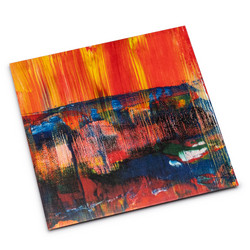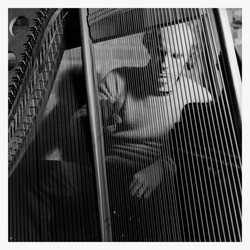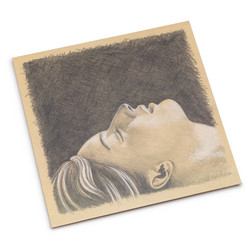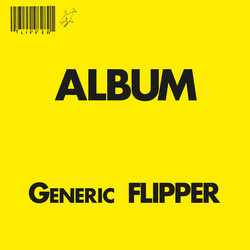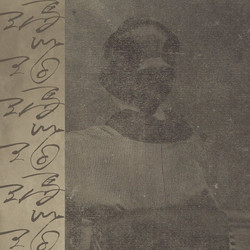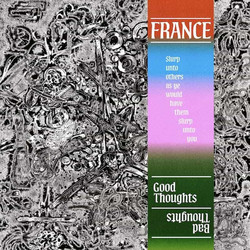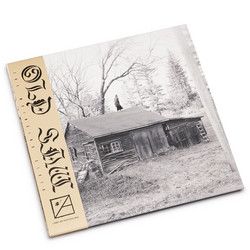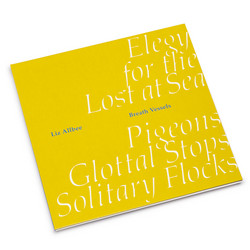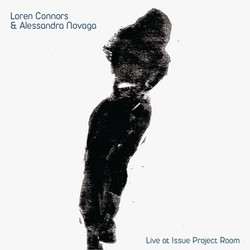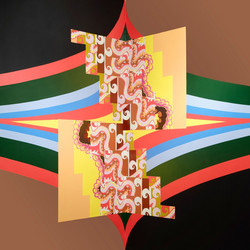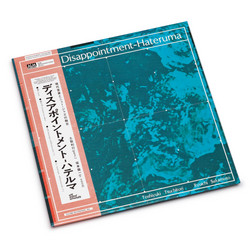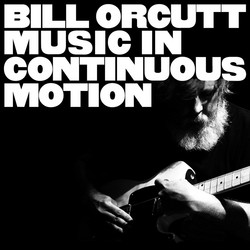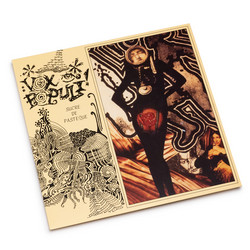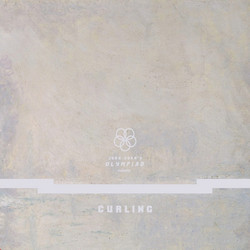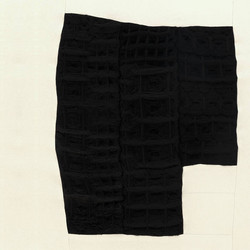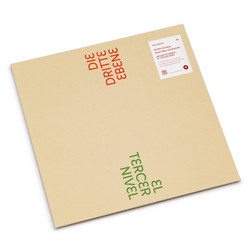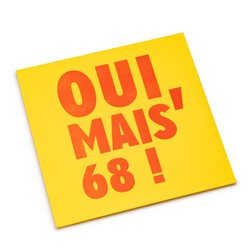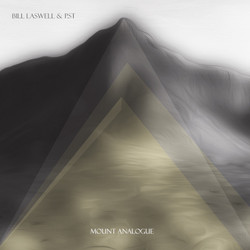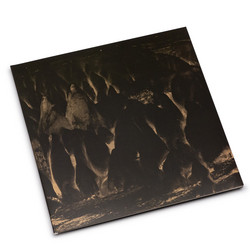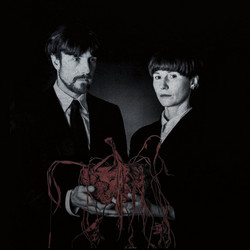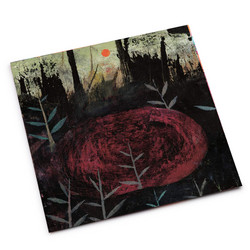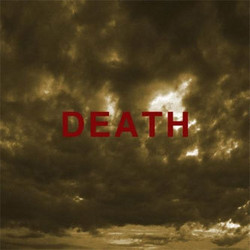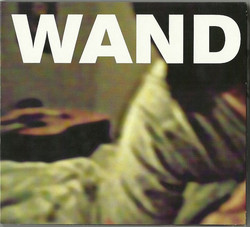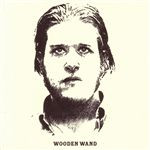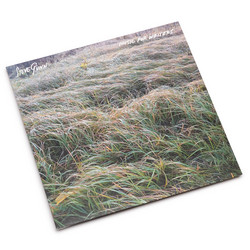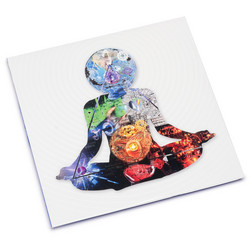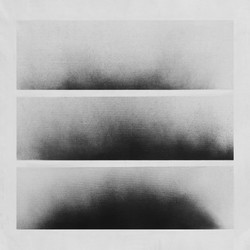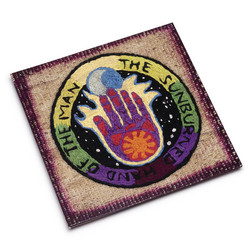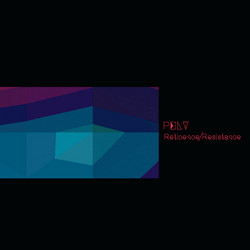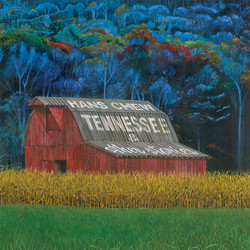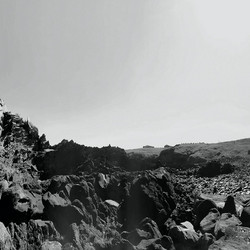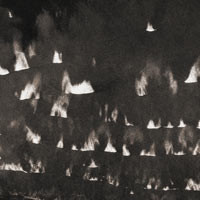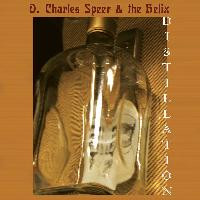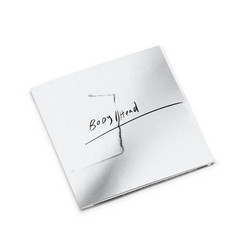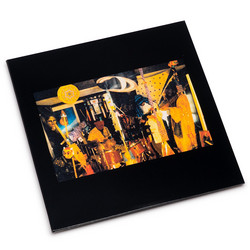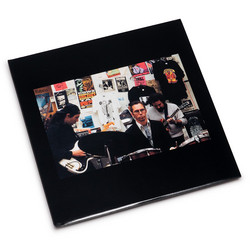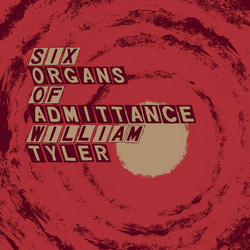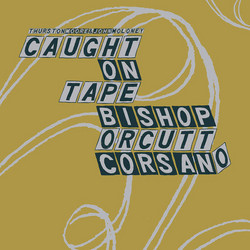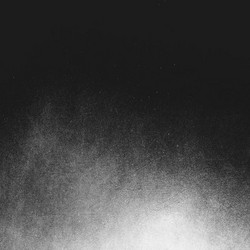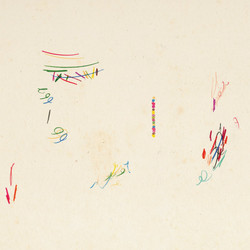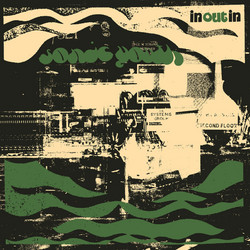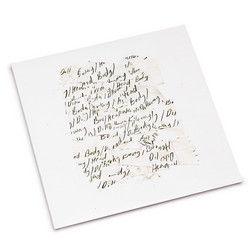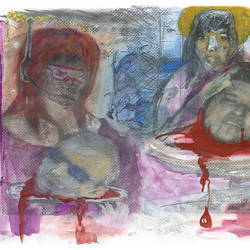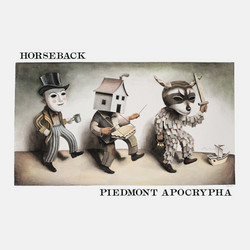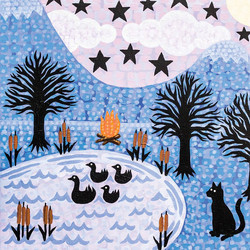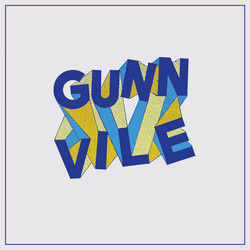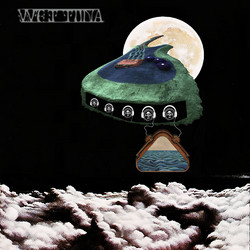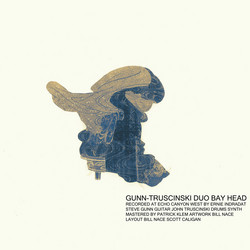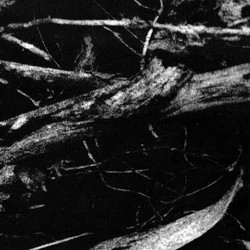Wooden Wand
Wooden Wand & The World War IV (LP)
You might have lost track of Wooden Wand some years back. No one would blame you. Under a decade into a recording career, his tangled discography had sprawled to Sun Ra-like breadth and complexity. He had parted ways with his longtime collaborators in the Vanishing Voice sometime around 2006, seemingly replacing them afresh with new (and newly named) backing groups on every subsequent release. He even threatened to jettison his own moniker—a threat he made good on for the pair of album he released as the truncated WAND, not to mention the scattering of CDRs as Hassara. There were label troubles, human troubles. His sound too had undergone a drastic metamorphosis. Gone was the solemn clatter of the New Weird America; gone the hobo incantations: relics now of the great millennial moment when lumbering noise collectives—Jackie-O Motherfucker, Jewelled Antler, NNCK, Sunburned Hand of the Man, et al.—still roamed the earth. What was left when the smoke had cleared was a kind of shopworn Americana, neither new nor weird: spare and singular, sometimes quite moving, but worn down. You might have lost track of Wooden Wand. By some accounts, the man born James Jackson Toth had lost track of himself.
But even those that couldn’t hope to keep up with the endlessly prolific Mr. Toth took notice of 2011’s ragged glorious “Briarwood” album. Recorded in Homewood, Alabama with a troupe of Birmingham music scene stalwarts, “Briarwood” was a work of pathos and joy, brimming with soul and swamp boogie: a series of sketches of small-town life, alternately hilarious and heart-breaking. A rebirth was afoot: the shaman of “Buck Dharma” had become a kind of Bob Seeger for the late imperial age: a gifted chronicler of the dead ends and the boredom and the human comedy of lives that happen while we are waiting around for other things. The languid and spooky 2013 follow-up, “Blood Oaths for the New Blues,” was another stunner: abandoning some of the volume and guitar musculature of “Briarwood,” but none of the extraordinary human detail. The gorgeous, Rhodes and steel-drenched “Blood Oaths” was the open-road record, filled with superabundant space and light, but death-haunted as a Cormac McCarthy novel: people running, but never really escaping.
Like its two predecessors, “Wooden Wand & the World War IV” was recorded down in Homewood with the same killer troupe of Birminghamians—a rare display of stability in a career heretofore marked by artistic restlessness. The self-title is the dead giveaway here, as this is a record that literally revels in the camaraderie of a band of likeminded musical souls that has now recorded three albums together and logged countless hours on the road. The Lungfish-esque opener “Someday this Child Will Die” retains the creepy gait of the “Blood Oaths” set, but wraps it here in a tangle of three-guitar snarl. The song’s repeated pronouncements on mortality ratchet up the tension with each iteration, until the track breaks completely around the halfway mark and the guitars begin shoving each other around over the locked groove of the rhythm section. The hectic second track, “Directions to Debbie Harry’s House” is even denser: a chorus of screaming guitars under Toth’s ominous refrain: Wrapped up in the shroud/And you can’t get out. The dolorous and lovely “Complaint Dept” recalls the emotional immediacy of “Briarwood”: an American twilight with Janet Elizabeth Simpson’s haunting backing vocals shading in the crimsons and purples of the sunset.
The change of sides marks a real disjuncture: a band steeped in the ferocious efficiency of the 80’s SST catalog it grew up with suddenly find itself conjuring the 70’s guitar god decadence that informed its first glimmerings of musical consciousness. Toth himself described the “World War IV” album as divided between a ruthlessly economical post-punk side A, scrubbed of keyboards and excess, and a side B dominated by colossal 70’s style stadium jams. The description is apt. Side B’s grand, apocalyptic “Our Father the Monster” plays like the stepchild of the Dead’s “Morning Dew” circa 1973, virtually demanding lighters in the air. (And the intertwined vocals of Toth and Simpson here have more than a little affinity with the stoner sublime of Black Mountain’s Stephen McBean and Amber Webber.) The psychedelic pomp of the album’s eight-minute closer, “McDonald’s on the Moon” features some of the finest guitar playing of Toth’s career, a bad-trip opus of serpentine guitars railing against the tawdry omnipresence of commerce.
Even with Wooden Wand’s expansive discography, one would be hard pressed to find three albums in a row made in the same place with the same people. But Toth has clearly found a musical home among the kindred spirits of the World War IV; and what is even more remarkable, the easy affinity and rapport these musicians possess seem to have impelled them toward growth and innovation, rather than stasis and familiarity. After the small-town dreaming of “Briarwood” and the haunted landscapes of “Blood Oaths,” “Wooden Wand & the World War IV” provides an opportunity for stock-taking. It is the sound of a band celebrating a shared musical past as a means of marveling at the persistence of a real connection in the present. Lord knows such things are hard to come by.

